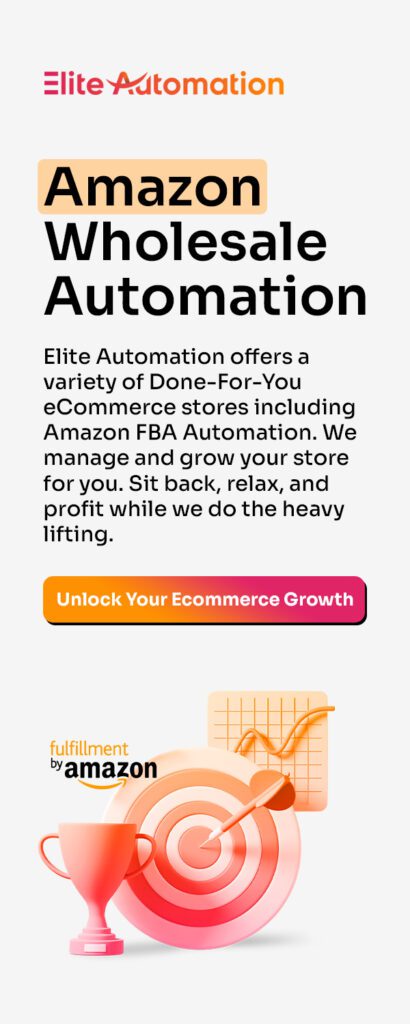Introduction to Startups
A startup is a small business that’s in the process of developing and generating revenue. The term “startup” can refer to any new enterprise, including businesses, organizations, and even websites. In this article, we’ll discuss practical marketing tactics for startups that have worked for other entrepreneurs and business owners just like you!
We’ll also discuss how to get started with each tactic and some examples of how they’ve been used successfully by other companies.

Understand Your Customers
The first step in marketing is understanding your customers. How do they think? What are their needs and wants? How can you satisfy them? The answers to these questions will guide the rest of your marketing efforts, so make sure they’re thorough and accurate.
Once you know who your target audience is, it’s time to dive deeper into their behavior patterns and preferences. You want to be able to understand how they interact with other brands in the market space—what else do they like, what else do they buy or consider buying? And how does that compare with what others are doing?
The better you can understand the market landscape around your brand at large—and specifically within your niche—the more confidently you can move forward with an effective strategy for engaging prospects and converting them into customers.
Create Hyper-Targeted Marketing Personas
If you don’t know who your target audience is, how can you expect to successfully market to them? Or even attract them in the first place?
That’s why it’s so important that you create hyper-targeted marketing personas. A marketing persona is a fictional representation of your ideal customer. It can be as granular or broad as you want it to be—you can even create multiple personas if your company has different audiences depending on the product or service being offered.
When creating a marketing persona, think about:
- Demographics (age range and gender)
- Psychographics (lifestyle interests and preferences)
- Behaviors (what they do online/offline)
Outline Achievable Goals for Your Business
Defining your goals is a critical first step to achieving them. Are you looking to double the amount of revenue generated through your business? Or do you want to expand into new markets and increase brand awareness? The answer is different for everyone—and it’s important that yours is specific, measurable and attainable.
Remember that goals are meant to be challenging but realistic, so don’t worry about what other people are doing or how long they took: if it helps, think of your goal as an ambitious yet tangible target that can be achieved within three months (or six if needed).
A few examples of potential business-related goals are:
-Increasing company revenue 10% YoY (year over year)
-Hiring a passionate Chief Environmental Officer
-Expanding your marketing and advertising to newer platforms like TikTok

Craft Compelling Customer Stories
- Use customer stories to help you connect with your customers.
- Customer stories are a great way to build trust, because they’re from people who have already taken the leap of faith with you. They can speak from experience about how your product or service has helped them in their business. These testimonials can be used in many ways, including testimonials on your website or social media platforms, case studies and customer success stories that detail specific results achieved by customers using your product or service. You can also edit these into short-form videos for ads, TikToks, Instagram Reels, or Pinterest Idea Pins.
Champion Exceptional Customer Experiences
The new organic marketing is customer experience.
You’ve probably heard that the customer experience is more important than your product, but many companies still don’t see it this way—and they should. You can have the best product in the world, but if your customers aren’t happy with their experiences with you, they will never buy from you again.
Customer experience is becoming a necessity for startups to survive and thrive in today’s business climate. It’s why companies like Apple and Zappos have been able to dominate their industries: Their products aren’t necessarily any better than those of their competitors; rather, their focus on customer satisfaction has made them leading innovators in their respective fields for decades now (and counting).
In fact, research shows that as much as 80% of buyers consider customer experience when making purchase decisions—which means that if your startup wants to stand out from its competitors in today’s marketplace and retain loyal customers, then investing time and effort into creating exceptional CX strategies is no longer optional—it’s imperative!
Leverage the Power of Video
Video is a powerful tool for any business. It can be used to tell your brand story, show how your product works, showcase happy customers and show how you solve problems.
Here are some examples of companies that have leveraged video in their marketing campaigns:
- Apple – The company’s “Shot on iPhone” campaign uses professional videos shot with iPhones in various situations to demonstrate the versatility of their devices. The company recently launched an ad campaign featuring celebrities singing along to one of Adele’s songs while using Apple products like iPhones and iPads.
- GoPro – GoPro has been on the receiving end of some criticism for its use of video as a marketing tactic after its earnings call this year revealed that only 20% of its revenue came from selling cameras, while 80% was generated by selling accessories such as drones or batteries (which can cost more than $10 per piece). However, GoPro still manages to keep up with other competitors like Sony through strategic partnerships with big brands like National Geographic Channel or YouTube channels like PewDiePie.
Harness the Power of Social Media
You should also be leveraging your social media presence. Social media is an amazing way to get the word out about anything, particularly if you have a strong following on the platforms you use.
It’s important to remember that social media is more than just posting and watching others scroll past it. You have to engage with your audience and provide value in order for them to pay attention. Don’t spam people! That said, don’t be afraid of using these platforms as an opportunity to carefully promote your business—it might be useful for some people who otherwise wouldn’t know about what you’re doing.
Use Growth Hacking Techniques
Growth hacking is a way to build your business more quickly.
It’s about finding creative ways to get more customers and users, and then turning those customers into loyal followers who will help you spread the word about your product or service.
So how does growth hacking work? It uses the same principles as marketing, but with a more nimble mindset that allows for rapid experimentation. Growth hackers don’t just rely on traditional marketing channels like social media—they try everything from sending direct messages on Twitter to running experiments with ad copy and proven-to-work landing pages. The goal is always to find something that works quickly and cheaply so you can test it out before making larger investments with your time or budget.
Create a Content Marketing Strategy
One of the most effective ways to market your startup is by creating a content marketing strategy. Content marketing is a form of marketing that involves publishing relevant, useful and valuable content that builds trust, authority and credibility with your target audience. This type of marketing helps you position your business as an expert in its field while also attracting new potential customers.
When you create a content strategy, think about how you want to position yourself in relation to other companies in the industry. What makes your company unique? What’s different about what you’re offering compared to other competitors? Once you’ve established what makes you unique, focus on ways to promote that uniqueness through different types of content such as blog posts, social media posts or video tutorials.

Crystal Clear, Consistent, and On-Brand Messaging
Define the problem before you start on a solution.
Before you can set ambitious goals, you need to define your product and its purpose. Think about the problem that your product solves and what makes it unique from existing options in the market. If there’s no real need for your product, or if it’s not differentiated from others, then perhaps it’s time to rethink where you’re headed.
The best way to create a meaningful brand is by clearly communicating with customers about who they are and what they stand for. To do this effectively requires clear messaging that aligns with their values and mission statement, which leads us back to one of our earlier points: knowing who exactly is going to be consuming your content (and whether or not those people will actually want to use your product/service.)
The tactics we’ve listed above are merely just a start. With creativity, determination, and hard work, there’s nothing stopping you from achieving true success as a startup.
Now that you know what tactics to use, it’s time to start implementing them. All you need is the right combination of creativity, determination and hard work.
With the above marketing tactics in your arsenal, there’s nothing stopping you from achieving true success as a startup.
Final Thoughts
If you’re looking to grow your startup and increase brand awareness, these proven marketing tactics will help you get started. They’re easy to implement and they work—so what are you waiting for? Start experimenting and implementing these marketing tactics for your startup today.

